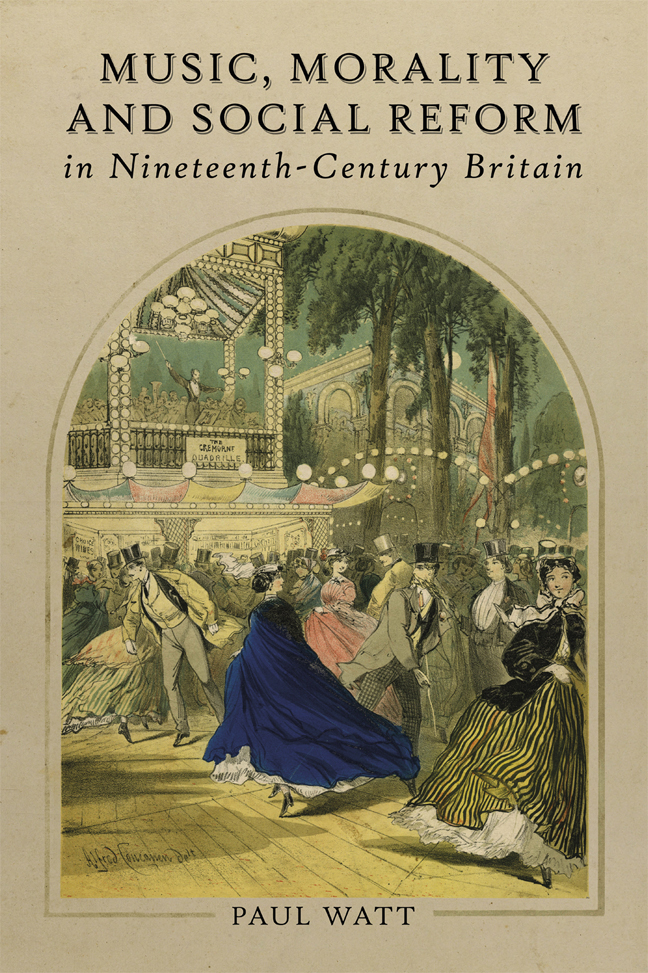2 - Manners and Etiquette
Published online by Cambridge University Press: 21 February 2024
Summary
The cultivation of manners (a term used interchangeably with ‘morals’) was vital to character formation, civility and civilisation and was written about extensively in the hundreds of etiquette books published in the nineteenth century in Britain and North America. It was agreed that a well-mannered woman provided stability and cohesion in the home and was, at times, regarded to be an icon of nation and empire. Improving the individual, as well as society, was what etiquette books sought to do. Books on manners and etiquette for women (and sometimes men) were written and read widely. Instructions were provided on the conduct of daily life, from how to arrange the text on an invitation card to how to carve roast lamb. Music sometimes played a part in the books that sought to define and shape social hierarchies, whether it be hosting and participating in music-making at private gatherings, dancing or attending public performances. This chapter begins by discussing the social spheres addressed by etiquette books, then outlines the aims and content of such books, before analysing them for the light they shed on the theory and practice of leading a moral life. It shows that claims of rational recreation, amusement and moral education were far from universal, and greatly influenced by differing values across class, gender and demography.
Scholars have long argued that etiquette books were a means to control and regulate the domestic sphere. The notion that nineteenth–century culture was cultivated in a domestic or private (or feminine) sphere in contrast to a public or political (or masculine) sphere has long been debated. The separation of spheres might explain divides such as class and gender but, as some scholars have pointed out, it detracts from recognising the fluidity of the movement of people between the spheres. David Kennerley and Phyllis Weliver have provided such a critique. Kennerley is sceptical about the very concept of spheres as they relate to music, arguing that they are a twentieth-century intellectual construct overlaid on a society that did not think in terms of spheres, and where musical performance was neither a strictly private nor public undertaking. In her work on the Gladstone salon, Weliver argues that visitors to the salon came from a diversity of backgrounds – and spheres – and thus employs the term ‘social sphere’ or a ‘sub-sphere’ to account for the plurality of those at work or play in the salon.
- Type
- Chapter
- Information
- Publisher: Boydell & BrewerPrint publication year: 2023



